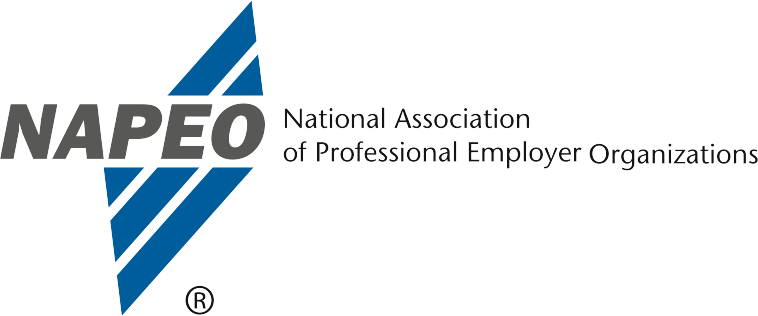Why is Onboarding so Important
So you’ve finally found the perfect candidate to fill that role. You’ve spent countless hours reviewing resumes, conducting interviews, and narrowed it down to the person you feel confident is THE ONE. All you have to do now is sit back and let them do them thing, right? Wrong. Now you need a plan on how to get them started, trained, and acclimated to the company, otherwise known as onboarding.
Why is proper onboarding so important? Because turnover is expensive—astronomically so. It can cost 30% to 50% of the person’s annual salary to replace an entry-level employee and for mid and senior-level employees it can reach 150% - 400% respectively. Every time an employee leaves, it impacts morale and productivity suffers. That’s why it’s critical for organizations to work on keeping their employees, and this can start by providing a well-designed onboarding process.
Studies have shown that a new hire’s decision to stay with a company long-term is made within the first six months of employment. That requires a great first impression! New hires are expensive. You want to protect your recruitment investment. An onboarding process that lasts more than one day or that begins even before the first day with engagement and crucial information can do that. Relying on a one-day HR orientation, a series of unrelated administrative tasks, and a folder of forms doesn’t work. Especially with the new generation of workers who expect speed and automation.
An onboarding program that delivers in all the right ways will accomplish these goals:
Reduces Time-to-Productivity:
Proper onboarding gets employees up to speed much more quickly, so that within weeks, it’s hard to tell the difference between new and seasoned hires.
Reduces Stress:
Being a new employee can cause a significant amount of anxiety. By giving your new employee all the information they need to know before they need to know it, it can reduce the negative affect that happens for new employees and makes it possible for them to concentrate on their jobs rather than their anxiety.
Reduces Turnover:
Turnover is very costly. Strong onboarding programs assure new employees that they are valued and have all the necessary tools to succeed. This is the time to show your employees that you care about them so they are less likely to look for work elsewhere.
Develops Job Knowledge:
While showing your new employee the mission, vision, values, and culture of the organization, proper onboarding ensures that new employees fully understand their roles and how they relate to the organization’s big picture operations. New employees learn what’s expected, how to deliver, and how and when they will be evaluated. Upfront education prevents damaging mistakes down the road. By conducting a great onboarding process, surveys have found that there is a better assimilation of new hires into company culture, higher time-to-productivity ratios, and higher employee engagement. Companies that are putting forth the effort in the beginning are finding that they retain new hires longer, they are able to get to a desired level of performance quickly, and managers are satisfied with the process and the hires. This has also minimized the disruption to the rest of the organization and strategically build trust between new and seasoned hires.
Many organizations start onboarding prior to Day 1 by finding ways to welcome their new hires and allows for them to deal with the administrative matters in advance. Several organization have a senior leader actively involved in the process. This can be as simple as a department head sending a personal note to each new hire or having a high level employee do a presentation for a group of new employees. While there are many different ways to measure employee engagement, it is critical to asses new hire satisfaction with organization-wide and group specific onboarding initiatives at 30 days, six months, and one year. It would also be a good idea to measure the percentage of your hiring managers who are satisfied with the onboarding process and the preparedness of their new hire. You can create surveys to generate insights from both new hires and their managers.
Retention of new hires is so important, since employees who transition through a consistent onboarding program engage more and with greater intensity. Likewise, they demonstrate they are less likely to quit. Unlike new hires who get thrown into a job cold.
Most new hires have already bought into your company story and they want to take part in what you’re doing. Onboarding takes these enthusiastic new people and rapidly engages and connects them to the life of the organization. That engagement leads to employee commitment. And their commitment leads to accomplishment.
Now if you are having any questions about the importance of properly onboarding employees, here are some numbers to really bring this home:
Retention
- 69% of employees are more likely to stay with a company for three years if they experienced great onboarding (source)
- Up to 20% of employee turnover happens in the first 45 days (source)
- New employees who went through a structured onboarding program were 58% more likely to be with the organization after three years (source)
- Organizations with a standard onboarding process experience 50% greater new hire retention (source)
Turnover
- The average cost of replacing an employee is between 16 and 20% of that employee’s salary (source)
- The organizational costs of employee turnover are estimated to range between 100% and 300% of the replaced employee’s salary (source)
- Nearly 33% of new hires look for a new job within their first six months on the job (source)
- 23% of new hires turnover before their first anniversary (source)
Performance and Productivity
- 60% of companies fail to set milestones or goals for new hires (source)
- It typically takes eight months for a newly hired employee to reach full productivity (source)
- Best-in-class companies are 35% more likely to begin onboarding processes before day one (source)
- Only 37% of companies extend their onboarding programs beyond the first month (source)
- Best-in-Class businesses are 2.5 times more likely to their new hires’ progress in the onboarding process (source)
- 22% of companies have no formal onboarding program (source)
- In the U.S. and U.K., an estimated $37 billion is spent annually to keep unproductive employees who don’t understand their job (source)
- Organizations with a standard onboarding process experience 50% greater new hire productivity (source)
- Employees whose companies have longer onboarding programs gain full proficiency 34% faster than those in the shortest programs (source)
- Manager satisfaction increases by 20% when their employees have formal onboarding training (source)
Need Help?
If you need assistance setting up a top-notch Onboarding process, reach out to Faces HCM for assistance. We have extensive experience creating successful Onboarding process for our clients. We can be reached at This email address is being protected from spambots. You need JavaScript enabled to view it..




